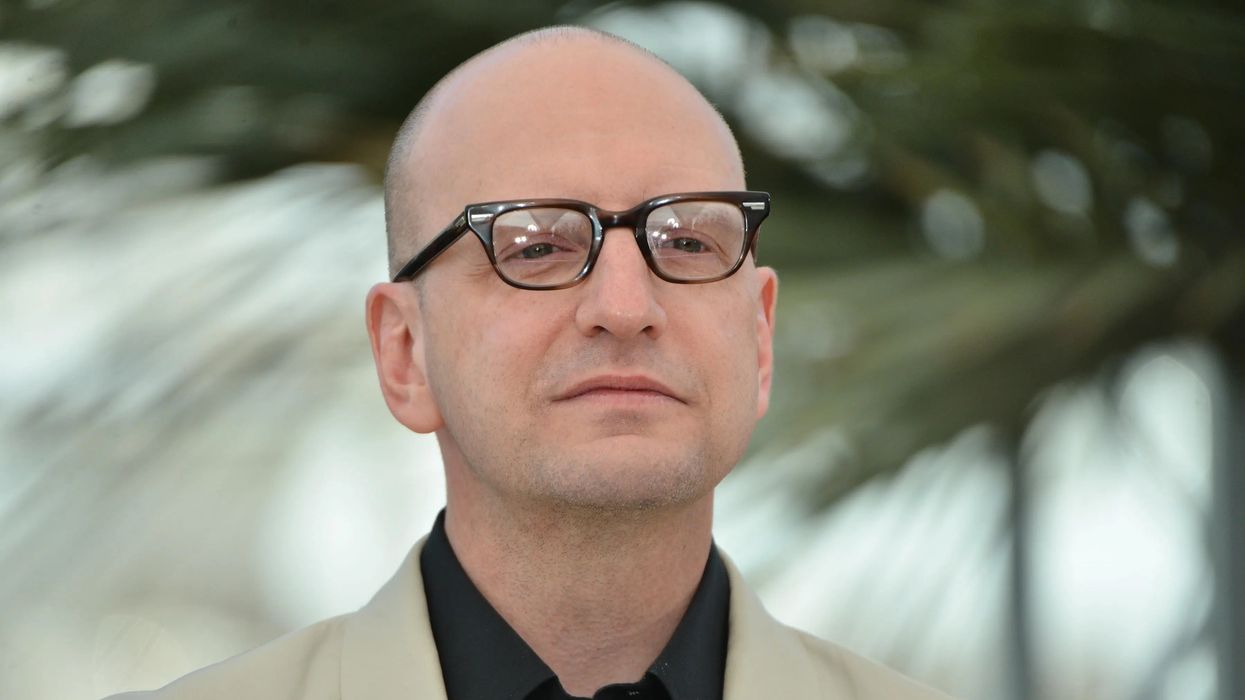Steven Soderbergh Is Giving Away a $300,000 Grant to Help Filmmakers Like You Finish Your Project
Steven Soderbergh teams up with the Coppolas' Decentralized Pictures to help filmmakers finish their projects.

Steven Soderbergh is a filmmaker who is not afraid to take a risk with new technologies. From his early embrace of day-and-date releases to self-financing and realizing being among the first filmmakers to use RED digital cameras, Soderbergh embraces the constantly changing landscape of the entertainment world.
After talking with Roman Coppola about supporting emerging filmmakers through Coppola’s blockchain-based nonprofit Decentralized Pictures, Soderbergh was eager to be involved with the promise of revolutionary entertainment problem-solving for aspiring filmmakers.
Soderbergh’s production company, Extension 765, launched a $300,000 pot of money on Tuesday on DCP’s platform. The Andrews/Bernard Award will help multiple filmmakers find the funds needed to finish their English-language fiction features or shorts.
Soderbergh says he and Coppola share an interest in avenues for boosting filmmakers that don’t necessarily lead to studios and is eager to help the revolutionary filmmakers of the future.
In a recent interview with IndieWire, Soderbergh said:
"As with a lot of things I’ve done, it’s kind of an experiment. Part of my interest in this was to really get under the hood of how this is supposed to work to see if it really does work. Because for me, it’s still an open question, only because anything that was invented by a human being is probably at some point going to have the flaws that a human being has. I really want to get up in the grill of this blockchain approach or structure to see if it’s going to do what it’s supposed to do."
Creators must submit pitches for specific financial and financial awards, then pay submission fees in the form of DCP’s FILMCredits token. The fee goes into a smart contract, which pays DCP community members for giving their opinion on the projects. The highest-rated projects become finalists from which DCP will choose the winners.
Many DCP leaders believe that the blockchain-based essence democratizes the filmmaking process and helps new voices break into the industry. Soderbergh, one of the leaders of the indie boom in the ‘90s, says he believes that DCP can help open up the doors for indie filmmakers and push against mainstream Hollywood’s efforts to create the most lucrative big-budget film.
“There’s no intermediary. The money is not passing through anybody’s hands,” he told GQ in August 2017 when discussing his production company. “All these people who work for scale to make this film will literally be able to go online with a password and look at this account as the money is delivered from the theaters. So it’s complete transparency.”
Even if Soderbergh did not change the film business' practices with his transparency, he is still looking to investigate possible innovations to help shed light on what is happening behind closed studio doors.
“What I like about [blockchain technology], potentially, is that it should provide for the thing I believe in—which is everybody knows everything all the time,” Soderbergh says.
Soderbergh decided to collaborate with DCP because of their shared mission to help filmmakers rather than profit off of them.
Roman Coppola says Soderbergh’s grant will be “an extraordinary resource for new generation filmmakers to express themselves. We feel that [Soderbergh] represents the highest bar in the world of independent and experimental cinema along with remarkable experience in the traditional Hollywood studio film. To DCP, he exemplifies the very best in adventurous creativity in the world of filmmaking and we’re very grateful that he is sponsoring a new generation of film artists.”
DCP also launched a collection of NFTs featuring 56 designs by Lithuanian director and artist Robertas Neecka to help fund DCP’s mission.
More information on DCP, including Soderbergh’s Andrews/Bernard Award, is available at decentralized.pictures.
Source: IndieWire











